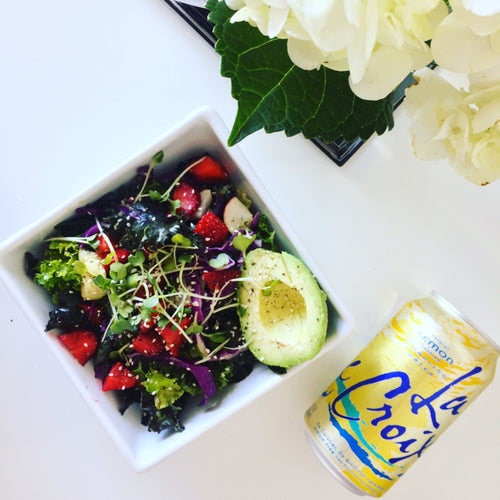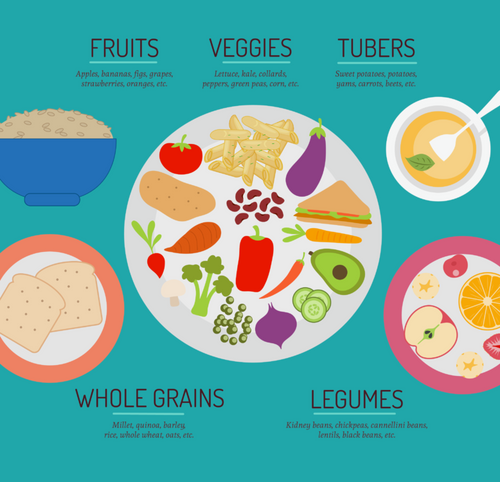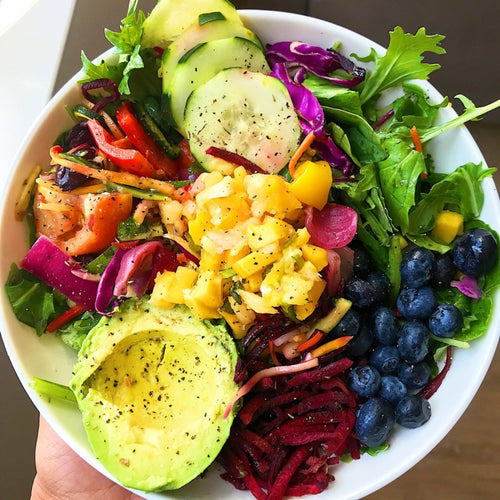Do I Have to Buy Organic?
We all have spent countless evenings and weekends grocery shopping and comparing produce prices with the question, “Do I have to buy organic?” The organic vs non-organic grey area plagues many who are just beginning their wellness journey.
What Does Organic Even Mean?
If you ask five people to define organic you will get five different answers. This article will use the USDA National Organic Program (NOP) definition:
Organic food is produced by farmers who emphasize the use of renewable resources and the conservation of soil and water to enhance environmental quality for future generations. Organic meat, poultry, eggs, and dairy products come from animals that are given no antibiotics or growth hormones. Organic food is produced without using most conventional pesticides; fertilizers made with synthetic ingredients or sewage sludge; bioengineering; or ionizing radiation. Before a product can be labeled “organic,” a Government-approved certifier inspects the farm where the food is grown to make sure the farmer is following all the rules necessary to meet USDA organic standards. Companies that handle or process organic food before it gets to your local supermarket or restaurant must be certified, too.
Be mindful of food labeling. Companies often use words like “healthy”, “natural”, or “fresh” to advertise food that might actually be full of hidden chemicals and additives. Organic food will be labeled in the following ways¹:
- 100% Organic: Made with 100% Organic Ingredients
- Organic: Made with at least 95% Organic Ingredients
- Made With Organic Ingredients: Made with a minimum of 70% organic ingredients with strict restrictions on the remaining 30% including no GMOs (genetically modified organisms).
- Less than 70% Organic Ingredients: Organically produced ingredients can be listed on the side panel of packaging
Do I Have To Buy Organic?
All this info returns us to the “Do you have to buy organic?” question. The answer is a matter of personal preference. There is no scientific evidence that organic food is more nutritious but evidence mounts illustrating the harms of pesticides and GMOs in conventional food.
I personally believe in buying Organic because it is better for our health, the environment, and the long-term sustainability of food production. I see food as medicine and approach it from a space of “Will this help me?” or “Will this harm me?”. Over the years I’ve witnessed my grocery habits evolve. I buy less food but a better quality. I made the decision to put my health and my body first and found a way to do it without breaking the bank. The trick is knowing what to buy organic, what to buy conventional, and where to get your food.
The Environmental Working Group (EWG) publishes the 2022 Shopper’s Guide to Pesticides in Produce which highlights the foods most likely to be contaminated with pesticides. They recommend buying organic of the “Dirty Dozen” foods while it can be safer to buy conventional versions of the “Clean Fifteen”.
Dirty Dozen – Foods Contaminated with Pesticides, Recommended to Buy Organic
- Strawberries
- Spinach
- Kale / Collard + Mustard Greens
- Nectarines
- Apples
- Grapes
- Bell + Hot Papers
- Cherries
- Pears + Peaches
- Grapes
- Celery
- Tomatoes
- Potatoes
Clean Fifteen – Lowest in Pesticides, Okay to Eat Conventional Versions
- Sweet Corn
- Avocados
- Pineapples
- Cabbage
- Onions
- Mushrooms
- Papayas
- Asparagus
- Mangoes
- Eggplant
- Honeydew Melon
- Kiwi
- Cantaloupe
- Cauliflower
- Grapefruit
The decision to go organic is up to you. Many people fear organic food and produce because of the price tag but organic doesn’t always have to mean more expensive. As demand for healthy and organic food rises, costs decrease and stores increase their offerings. Check local farmers markets and specialty shops for deals on in-season fruits and veggies! If you eat meat, get to know your local butchers and their specials while inquiring about how the animals were raised.
Learning about your food is the best thing you can do for your health. You don’t have to make sweeping changes all at once; simply becoming more conscious of what you consume and where it comes from shows you’re already headed in the right direction!
Sources:
- http://www.organic.org/home/faq







